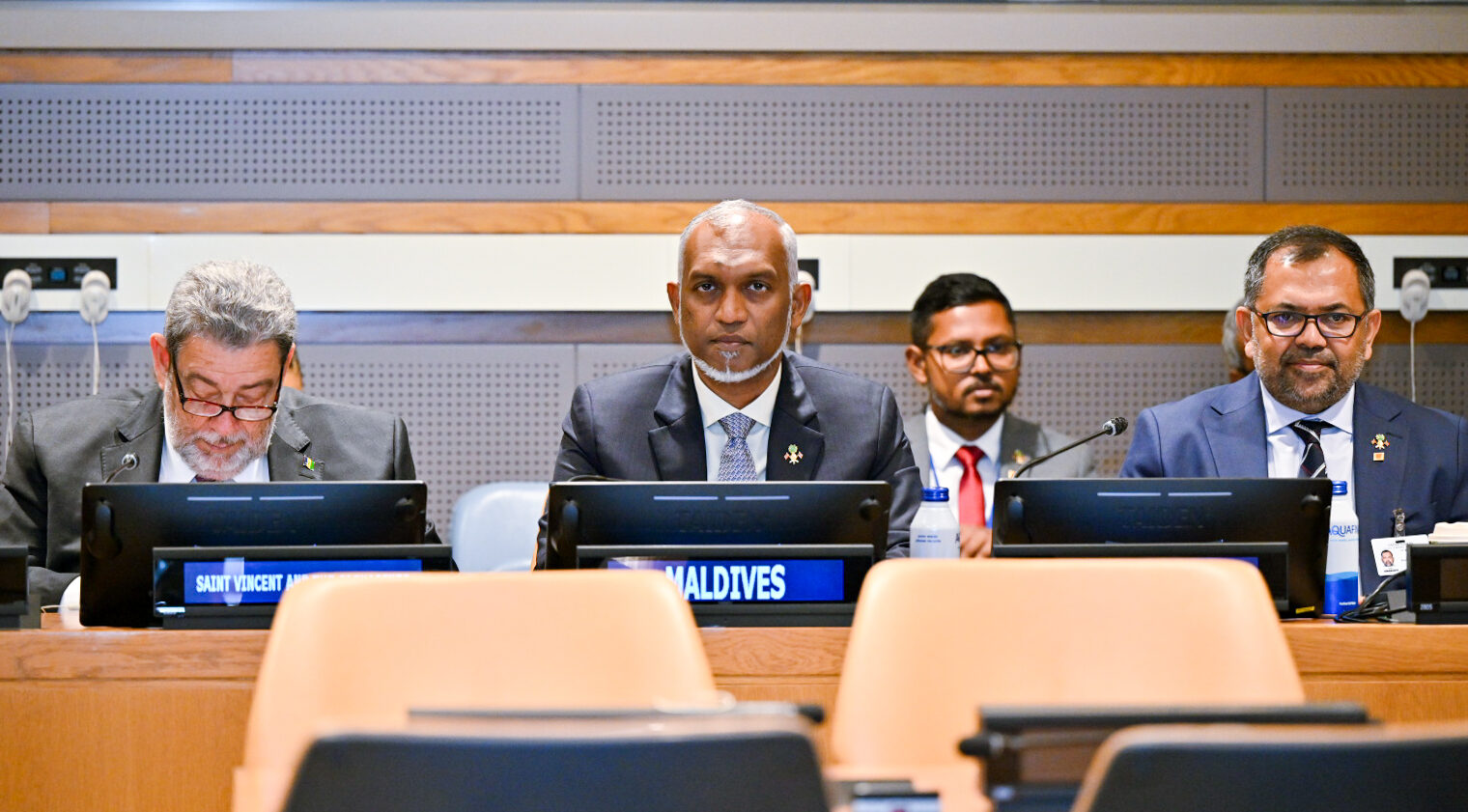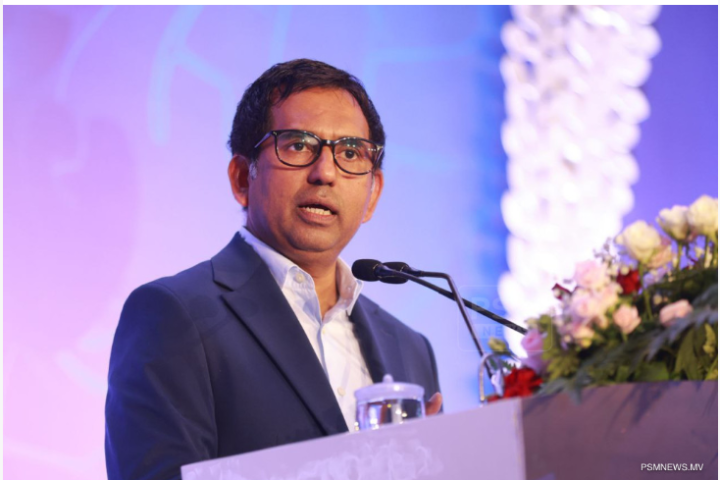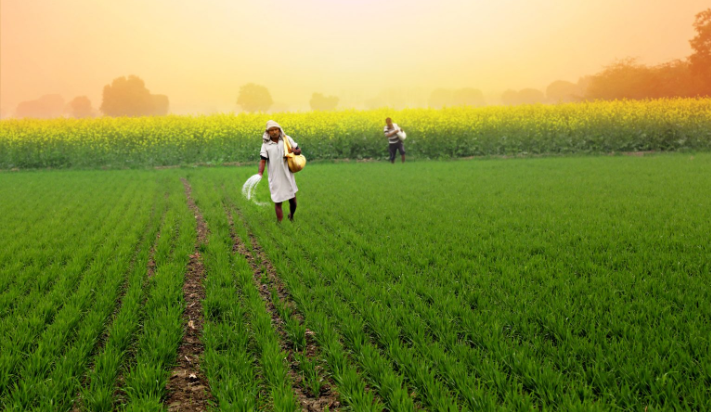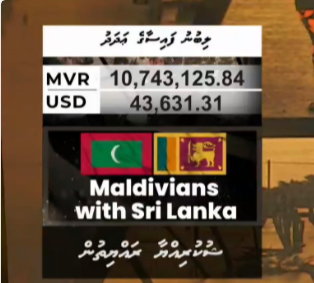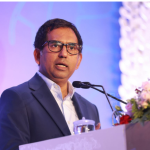UNITED NATIONS – Citing legendary boxer Muhammad Ali, President Dr. Mohamed Muizzu, kicked off his keynote address at the UNCTAD Side Event on “Building Productive Capacities in Small Island Developing States (SIDS)” by urging a shift from outdated development strategies. “It isn’t the mountains ahead to climb that wear you out, it’s the pebbles in your shoe,” Muizzu said, setting the tone for a speech that called for ambitious, forward-thinking solutions to the challenges faced by SIDS.
President Muizzu’s address centered on the urgent need for economic diversification, technological advancement, and international cooperation to tackle the structural vulnerabilities that small island states like the Maldives continue to grapple with. His speech, delivered to a distinguished panel that included Prime Minister Dr. Ralph Gonsalves of St. Vincent and the Grenadines, emphasized how seemingly small, systemic inefficiencies are often the greatest hindrance to progress.
The Maldives’ Development Agenda: A Focus on Diversification
A core theme of Muizzu’s address was the emphasis on the various developmental tasks that his administration is undertaking to diversify the Maldivian economy. While tourism has long been the primary driver of the country’s GDP, Muizzu stressed the importance of moving beyond a single sector. “In the Maldives, our tourism sector has propelled us from low-income to upper middle-income status. However, like many other SIDS, we find ourselves caught in the middle-income trap,” he noted.
The President outlined a number of initiatives his government is actively pursuing to break free of this trap. He highlighted investments in sectors like fisheries, agriculture, and manufacturing, while also promoting creative industries and digital economy. “Overcoming this challenge requires structural transformation, diversification of the economy, and enhanced productive capacities,” Muizzu explained, adding that the Ten-Year Program of Action for SIDS, known as ABAS, provides a roadmap for achieving these objectives.
Muizzu also called on the international community to support SIDS in expanding their productive capacities, stressing that economic diversification is not merely an option but a necessity for long-term, sustainable growth. “The logic is straightforward: higher productivity allows us to generate more output from the same level of inputs, improving resource allocation and, ultimately, societal welfare.”
Technological Advancement: “A New Frontier for Growth”
Highlighting technology as a central pillar of his vision for the future, President Muizzu described the digital economy as the “new frontier for growth.” He stressed the need for SIDS to embrace the potential of the digital economy by investing in digital infrastructure and human capital. “In the Maldives, my government is committed to facilitating access to global payment gateways, ensuring that the country is fully integrated into the global market,” he said.
Muizzu pointed to key developmental initiatives aimed at upgrading the nation’s technological landscape, including investments in skills development programs designed to prepare the workforce for a digital future. “By equipping our youth with the necessary digital skills, we’re positioning ourselves to tap into the global creative economy, valued at 2.25 trillion US dollars.”
The President added that the Maldives is nearing universal access to high-speed internet, which he said will not only enhance service delivery and entrepreneurship but also improve the country’s ability to engage in global commerce. “We’re deploying advanced technologies, such as 5G and AI-enhanced systems, to improve state capacity and foster innovation,” he noted, adding that these investments are critical for maintaining the country’s competitiveness on the global stage.
Infrastructure and Resilience: The Foundation of Economic Growth
President Muizzu emphasized the importance of resilient infrastructure as a foundational element of economic development, underscoring that economic growth cannot occur in isolation from improvements in transportation, energy, and digital connectivity. “In the Maldives, we’re upgrading our infrastructure across key sectors in order to access global supply chains and attract new investments,” he said.
These infrastructure upgrades, which include near-universal access to high-speed internet and the deployment of 5G technology, are designed to create a digital ecosystem that fosters entrepreneurship and boosts productivity. Muizzu also highlighted the role of AI and other advanced technologies in enhancing the state’s capacity to deliver services efficiently, adding that these innovations are key to the Maldives’ broader development agenda.
Data-Driven Policy: Leveraging the Productive Capacities Index
President Muizzu also stressed the importance of making evidence-based policy decisions, with particular focus on the Productive Capacities Index developed by UNCTAD. This tool, he said, is critical for allowing policymakers to measure and track the productive capacities of SIDS, enabling them to design targeted interventions to unlock growth potential. “I urge our development partners to provide the necessary financial support to further develop and refine this Index,” Muizzu said, emphasizing that such tools are essential for driving economic transformation.
He called for greater collaboration with UNCTAD and other UN agencies to identify country-specific policy interventions that would boost the Maldives’ productive capacity. “I also invite our development partners to support us in expanding our digital infrastructure and strengthening institutions such as the National Centre for Information Technology and the National Cybersecurity Agency,” he added.
Breaking the Narrative: SIDS Are Not Inherently Limited
In a powerful conclusion, Muizzu challenged the often pessimistic view that small island nations are inherently limited in their development prospects. “While it is true that we, the SIDS, face unique structural challenges, we’ve seen examples of similarly situated countries that have successfully overcome these barriers through strategic investments in productive capacities, innovation, and human capital development,” he stated.
Referencing Muhammad Ali, Muizzu reiterated his belief that it’s the “pebbles in the shoe” — outdated thinking and ineffective strategies — that hinder progress for SIDS. “We must challenge the narrative that SIDS are inherently limited in their development prospects,” he urged, encouraging the international community to replace old models with forward-looking, data-driven plans rooted in productivity-enhancing reforms.
President Muizzu’s address was met with widespread support, with many participants at the event acknowledging the need for innovative, data-driven approaches to enhance the resilience and productive capacities of SIDS. His call to action marked an important step in both the Maldives’ development journey and the broader efforts of SIDS to chart a path towards long-term, sustainable growth.
